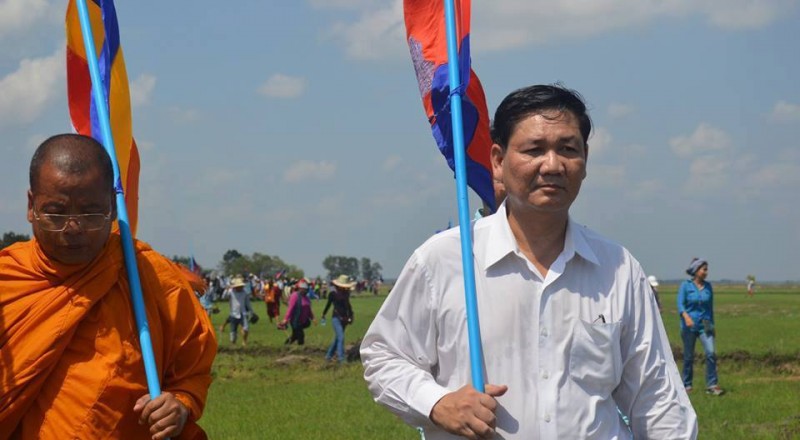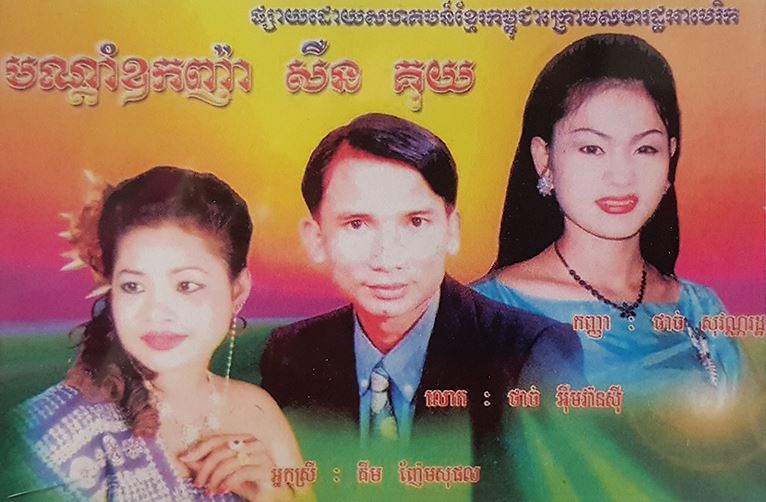Sincerely yours,
Open Letter to the National Assembly President on the draft Law on Belief and Religion
Thu the 5th Waxing Moon of Assayuja B.E.2560, October 6, A.D.2016 Year of the Monkey
The Hon. Nguyen Thi Kim Ngan
President of National Assembly of Vietnam
Doc Lap Street, Quan Thanh
Ba Dinh, Hanoi
Dear National Assembly President Nguyen Kim Ngân,
 We, the undersigned civil society organizations, are writing to express our concerns about the proposed Law on Belief and Religion in Vietnam. The draft law, which has been revised several times and drawn strong criticism from many religious communities, is expected to be voted into law by the National Assembly at its session in October- November 2016.
We, the undersigned civil society organizations, are writing to express our concerns about the proposed Law on Belief and Religion in Vietnam. The draft law, which has been revised several times and drawn strong criticism from many religious communities, is expected to be voted into law by the National Assembly at its session in October- November 2016.
The most recent draft was discussed at a high-level meeting of the Communist Party’s Fatherland Front on 17 August, and circulated to certain religious communities for comment. An examination of the draft law that was published on the National Assembly website shows that the 9-chapter draft law contains some improvements, but also continues to place unacceptable restrictions on the right to freedom of religion or belief and other human rights. Specifically, basic guarantees of the right to freedom of religion or belief continue to be undermined by onerous registration requirements and excessive state interference in religious organizations’ internal affairs. Indeed, this and the previous versions of the law inherit from previous rules and regulations this emphasis on government control and management of religious life which is contrary to the spirit and principle of the right to freedom of religion or belief.
As mentioned above, the draft was circulated to certain religious communities for comment. However, one Catholic body also objected to the short time, from 18 to 30 August, given for preparing their response to the draft law. [1] Furthermore, independent religious groups not registered with the government, such as the United Buddhist Church of Vietnam, were not consulted.
There have been some welcome improvements made in the draft law, including provisions for the right to change one’s religion, as well as to follow or not follow a religion, the right of some detainees “to use religious books and manifest their belief or religion”, and the right of religious organizations to participate in activities such as education, vocational training, medical care and social and humanitarian assistance.
Nevertheless, the recommendations below have emerged from some of the particular concerns expressed by religious communities in Vietnam, which are shared by the undersigned organisations.
1. The definition of a religion should be made consistent with Article 18 of the International Covenant on Civil and Political Rights (ICCPR).
In the current draft, a religious organization has been defined as “a group of people … which is recognized by the government” (our emphasis) (Article 2.13). This leaves members of religious organizations who cannot or choose not to register with the authorities in a legal limbo, with no legal safeguards for conducting religious activities.
2. Registration with the government should not be made a pre-requisite for the exercise of freedom of religion or belief.
The onerous and complex registration process requires approval from the authorities for religious activities, operations and status as an organization. The guarantees outlined in Article 18 of the ICCPR are independent of and cannot be conditioned on any domestic process of notification, authorisation, recognition or registration.
3. The law must not allow officials to arbitrarily interfere in the internal affairs of religious organizations.
Provisions in the law allow the authorities to interfere excessively in the internal decisions, appointments, training, teachings and programmes of religious organisations. Limitations on the manifestation of freedom of religion or belief must never exceed in either purpose or scope those permitted in article 18(3) of the ICCPR. As the UN Special Rapporteur on Freedom of Religion or Belief, Dr. Heiner Bielefeltd, said after his visit to Vietnam in 2014, “…registration should be an offer by the State but not a compulsory legal requirement.”
4. Ambiguous and potentially discriminatory language should be removed.
The draft law contains ambiguous language regarding “good traditional cultural values” (Article 10.1) and “sowing division” (Article 5.4), that could be used to discriminate against ethnic and indigenous minorities, independent groups and those whose religion or belief is seen as “foreign” (Article 2.12).
Related
សូមគាំទ្រឧបត្ថម្ភ សហគមន៍ខ្មែរក្រោម Support KKC
សូមអរគុណដ៏ជ្រាលជ្រៅចំពោះសប្បុរសជននូវវិភាគទានទាំងនេះ។
We’re On Facebook

Sign in
Click here to reload the page over ssl.




